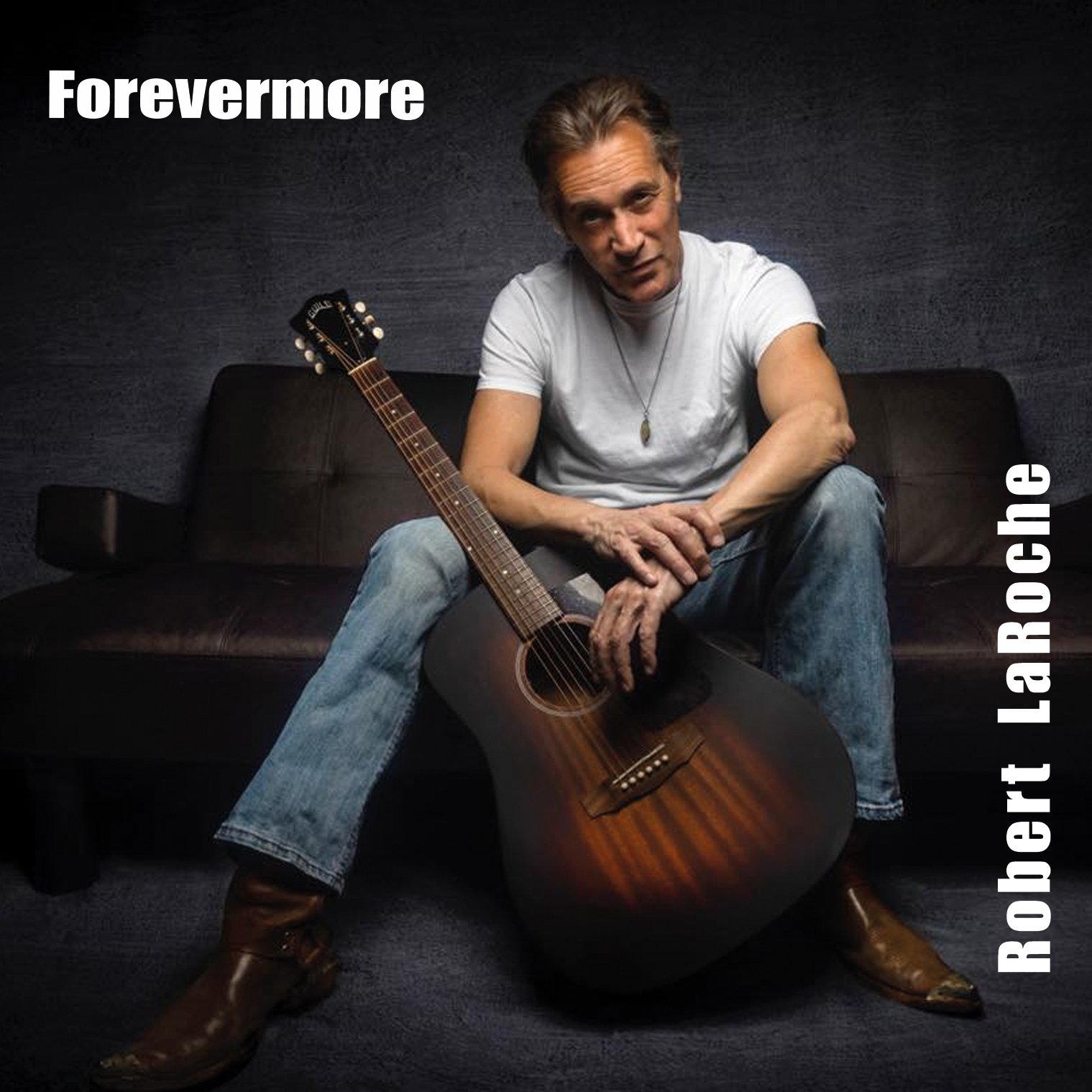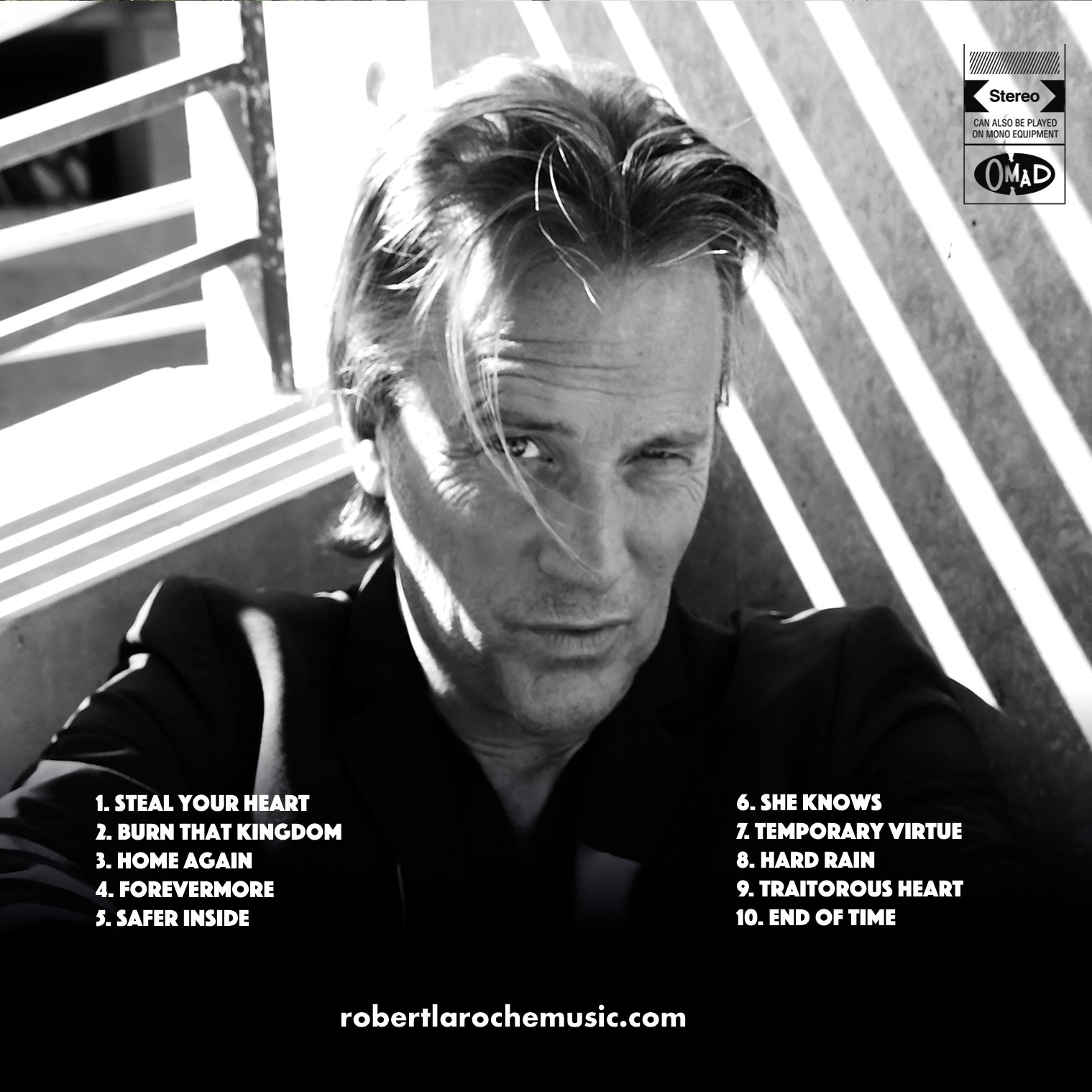Robert LaRoche Forevermore
Robert LaRoche
Forevermore
Forevermore, the adverb, means eternity, always, forever—yet on Forevermore, the album, Robert LaRoche expresses each of its exquisite musical love stories in some three minutes or less “I’m a firm believer in less is more,” he says. “Simplicity, memorable hooks, and straight from the heart.”
It’s an ethos of song craft LaRoche has practiced throughout his career: during the Eighties and Nineties, as the frontman for power pop sensations The Sighs, and as a solo artist. With Forevermore, his second full-length release, he’s created a tuneful travelogue through just about every romantic landscape us human beings can visit. “Love, loss, redemption and most importantly hope are the basic essence of these songs,” he says of the record’s running theme.
This becomes sparkling clear, from the chime-y, harmony-heightened charm of “Steal Your Heart” and “Home Again” onto the plaintive “Hard Rain” and the pledge of “Burn That Kingdom.” Sweetened with strings, the title track has LaRoche commemorating his parents’ 70-year relationship, while “Safer Inside” taps gentle keyboards to explore self-protection, its vocal advising: “Don’t let it show, don’t let him know that you’re afraid to find the love we made.”
Lyrically, Forevermore’s songs have a personal vulnerability that’s nonetheless relatable. “They’re all autobiographical to a certain degree; my life experiences, some past, some present,” LaRoche reveals. “Honest and direct—that’s the only way I know how to write.” As if there’s any doubt, the natural, earnest yearning of his tenor underscores that truth on every track.
Lending chops to Forevermore are Sighs’ drummers Tommy Pluta and Tom Borawski (Pluta switched to bass as the band’s sound began to gel), while legendary axe-slinger Zonder Kennedy delivered the ripping solo on “Burn That Kingdom.” Native New Englander LaRoche called on David Perales (violin) and Brian Standefer (cello), like-minded musicians from his adopted city of Austin, Texas. As to everything else contributing to the richly textured sound, LaRoche relied on his longtime friend John DeNicola, an Oscar-winning songwriter, producer and the main man of Omad Records; the two have worked together since The Sighs’ 1992 debut LP.
“Collaborating with John is an absolute pleasure, as he’s full of musical curiosity and makes the recording process extremely enjoyable,” says LaRoche. “He’s a strong advocate for experimentation, so whatever idea one or both of us had was given a try.” The Forevermore sessions took place at DeNicola’s studio, a converted barn in bucolic Upstate New York. “As a multi-instrumentalist, John anchored the tracks with his signature bass playing, later layering on B3 organ, electric guitar, marimba, pump organ, even glockenspiel!” LaRoche goes on. “We both love vintage guitars and amplifiers, and this gorgeous retro sound had a direct impact on the record’s overall sonic warmth.”
Robert LaRoche has done nothing but music since his teens in Holyoke, Massachusetts—and his enthusiasm for it never flagged. The Sighs toured hard and long in support of their Nineties’ albums What Goes On and Different, and when their frontman elected to step out of the spotlight for awhile, he found a satisfying supportive role, writing, recording, and performing with Patricia Vonne, whose pop-rock sound has Latinx/country flavors. Ultimately, however, LaRoche’s own muse began to stir anew; he released the aptly titled Patient Man in 2015 and its follow-up, A Thousand Shades, four years later.
On Forevermore, he has come full circle. There are sparkling, giddy moments and somber, poignant pieces that reach into some of our most painful places, his voice on target every time. “Loss and gain, dark and light—it’s the basic human experience of redemption that I hope rings true to the listener,” LaRoche says.
Find out for yourself—in under thirty minutes. Cue up Forevermore. Now.


